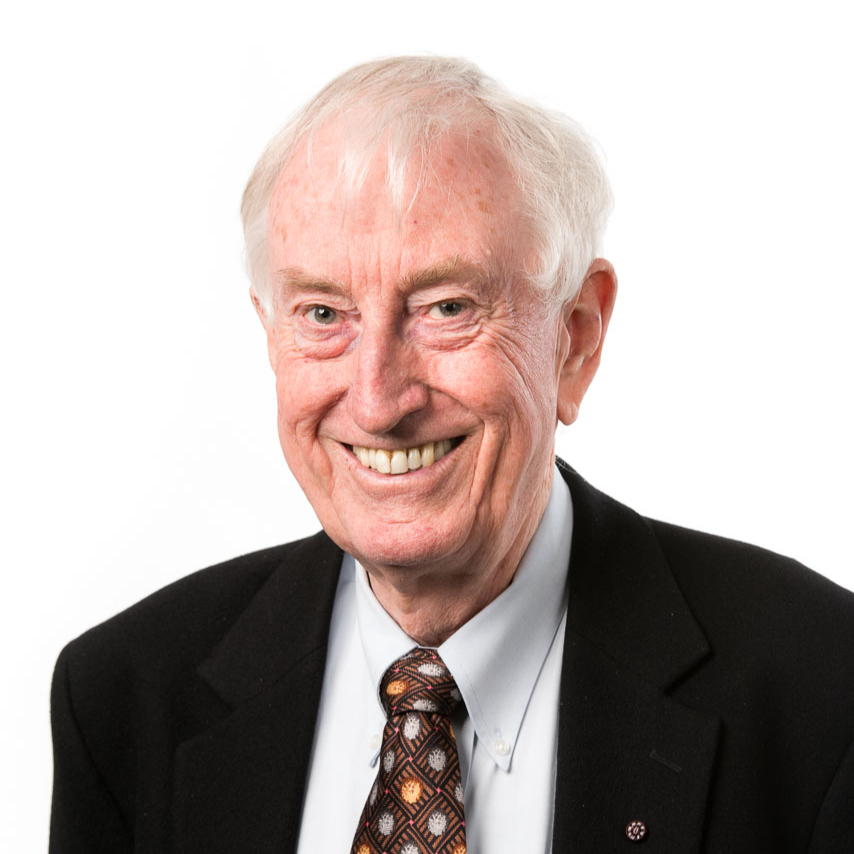5 Questions with Peter Doherty
Ahead of Peter Doherty: An Insider’s Plague Year, we asked the prominent immunologist five questions about his response to these ‘unprecedented times’.

Throughout the past two years, the public has watched medical innovation unfold in real time with the creation of COVID-19 vaccines. What implications might this sort of focused public attention have for medical developments in the future?
Hopefully, what’s happened over the past two years with COVID-19 has generated a more sophisticated and aware audience who have a better idea of what it takes to innovate in the medical research space. From our point of view at the Doherty Institute, we’ll do our best to put new and intriguing stuff out there, and to try to relate that to the realities of day-to-day life.
What can we do in our daily lives to counter the tide of disinformation we’re experiencing in topics like COVID, climate change, politics and many others?
That’s a really tough question, and one of the ‘big ones’ of our time. I tried to tell people how to look for evidence, identify fraudulent players and recognize ‘invented narrative’ – Trump called it ‘fake news’, his modus operandi – in my 2015 book, The Knowledge Wars. But the situation has become much worse since then and we are constantly being bombarded with disinformation. I’m very aware of that from my involvement with Twitter. We are at war with lies and BS, and it is not going to stop. How do we get people to be less gullible?
A federal election is due to be held in two months. What advice would you give to people preparing to vote at the polls?
It’s pretty simple: decide what is really important to you and vote accordingly. There may be no perfect match, but that’s life and we may be pleasantly surprised if we settle on the ‘least-worst alternative’. And, as you look at policies, remember that the party with progressive views that might have corrected some of the most egregious distortions regarding wealth distribution etc. was voted down at the last election. In short, decide if you are happy with what has been happening here over the past 8 years and, if you aren’t, vote for someone else. And watch the preference distributions!
In hindsight, which lessons from your 2013 book Pandemics, What Everyone Needs to Know do you think were adopted, and which were missed?
The cutbacks to public health agencies (like the US CDC) that worried me at that time continued and did cause some problems at the beginning of the outbreak. Trump further cut US funding for the WHO. In the book, I wrote a lot more about our understanding of disease processes (my field) rather than public health policy, so there weren’t that many recommendations. Also, who could have anticipated the craziness of Trump and his followers? What changed dramatically since then is internet communication – zoom has been an enormous asset – and the social media landscape. I’d write the book very differently now!
Is COVID over?
We’re all hoping that – and many are behaving as if – the pandemic is over. The prediction from our past experience with influenza was that this would end with a milder strain taking over. Is that Omicron? We don’t know and, as it is killing a lot of unvaccinated people (in Hong Kong, for example) it’s not all that mild. Having dropped all protective measures in the public health space, I do worry about what will happen if we are suddenly confronted with a more virulent strain. That’s not the BA2 variant of Omicron, but this virus has continued to surprise us.
Related Posts

Read
Anne-Marie Te Whiu Receives The Next Chapter Alumni Poetry Fellowship
2 Apr 2024

Read
What's on in April: Resident Organisation Round Up
28 Mar 2024

Read
Blak & Bright First Nations Literary Festival returns in 2024
7 Mar 2024

Read
What's on in March: Resident Organisation Round Up
29 Feb 2024

Read
Hot Desk Extract: International
23 Feb 2024

Read
Hot Desk Extract: The Rooms
23 Feb 2024
Share this content